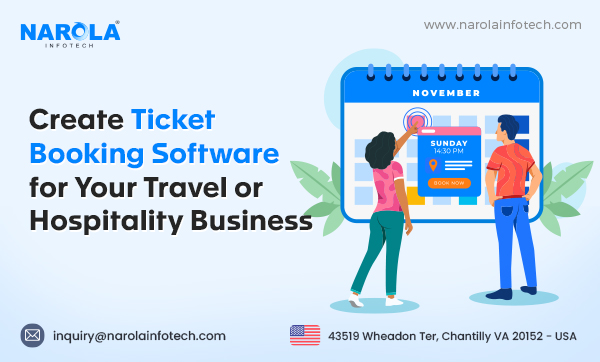The travel and hospitality industry is constantly evolving, and businesses need to adapt to stay ahead of the curve. One way to do this is by investing in ticket booking software.
Ticket booking software can help businesses streamline their operations, improve customer service, and increase sales. Here are some of the benefits of using ticket booking software
Streamlined operations
Ticket booking software can automate many of the
tasks involved in booking tickets, such as checking availability, processing
payments, and generating confirmations. This frees up staff to focus on other
tasks, such as providing customer service.
Improved customer service
Ticket booking software can provide customers with
a more convenient and efficient way to book tickets. This can lead to improved
customer satisfaction and loyalty.
Increased sales
Ticket booking software can help businesses reach a
wider audience and sell more tickets. This is because it allows businesses to
sell tickets online, 24/7.
Better insights into customers
Ticket booking software can collect data about
customers, such as their demographics and purchase history. This data can be
used to improve marketing campaigns and target customers more effectively.
If you are a travel
or hospitality business, then you need to consider investing in ticket booking
software. There are many different ticket
booking software solutions available, so you can choose one that meets your
specific needs and budget.
When choosing a ticket booking software, it is important to consider the following factors
Features
The software should have the features that you
need, such as real-time availability, multiple
payment options, and customer support.
Scalability
The software should be able to scale to accommodate
a growing number of customers.
Security
The software should be secure to protect customer
data.
Support
The software provider should offer good support in
case you need help.
If you are looking
for a premium ticket booking software solution, then I recommend contacting a
reputable travel
software development company. These companies have the expertise and
experience to help you create a custom solution that meets your specific needs.
View Success Stories Who Focused on Certain Factors: VoetstAPPen
App
Here are some of the key features that you should look for in a ticket booking software for your travel or hospitality business
Real-time availability
Customers should be able to see the availability of
tickets in real time.
Multiple payment options
Customers should be able to pay for tickets using a
variety of payment methods, such as credit cards, debit cards, and PayPal.
Customer support
There should be a way for customers to contact
customer support if they have any questions or problems.
Security
The ticket booking software should be secure to
protect customer data.
Scalability
The ticket booking software should be able to scale
to accommodate a growing number of customers.
I hope this blog
post has helped you to understand why you need to create ticket booking
software for your travel or hospitality business. If you have any questions,
please feel free to Contact Narola
Infotech.

Comments
Post a Comment